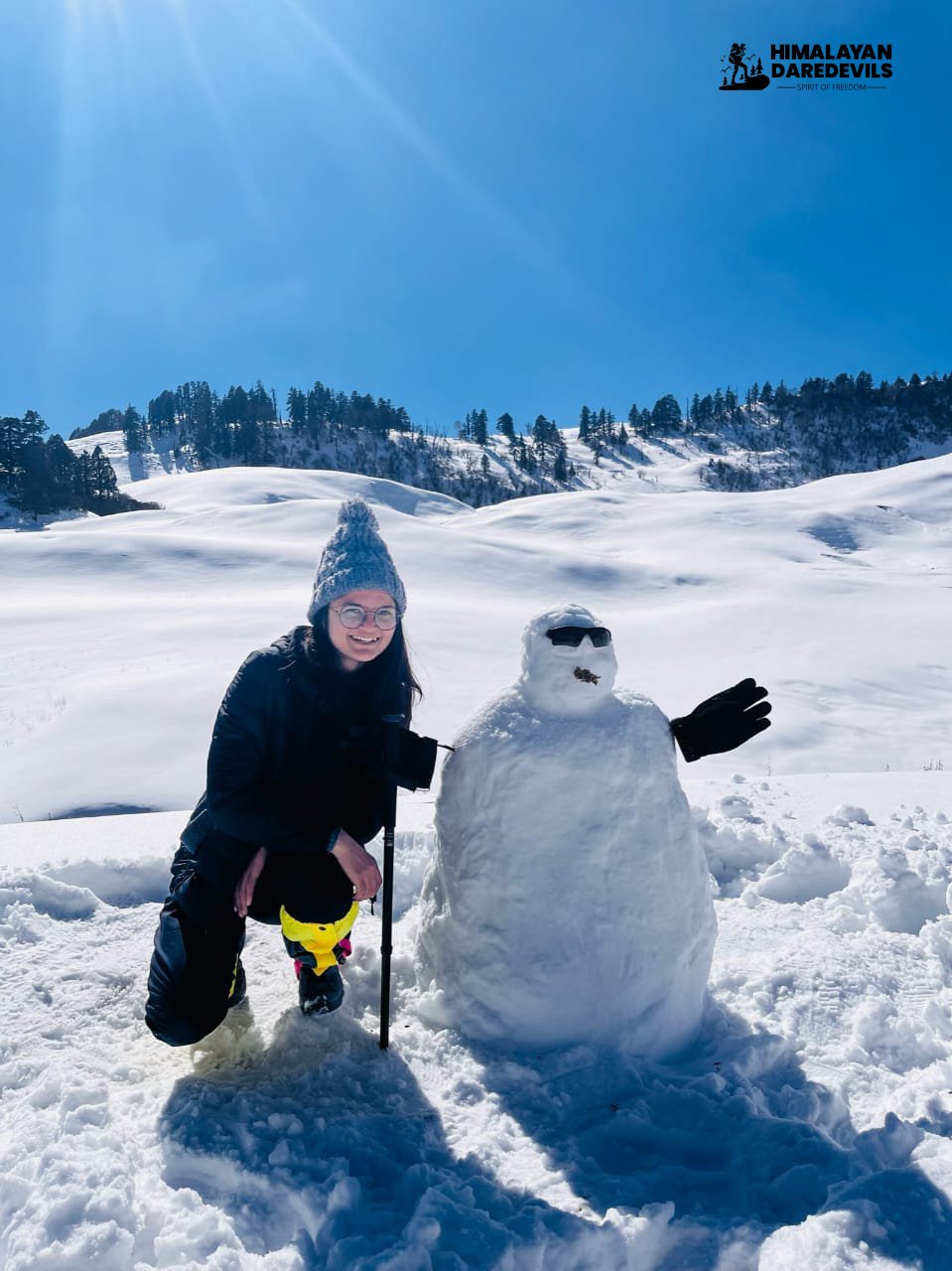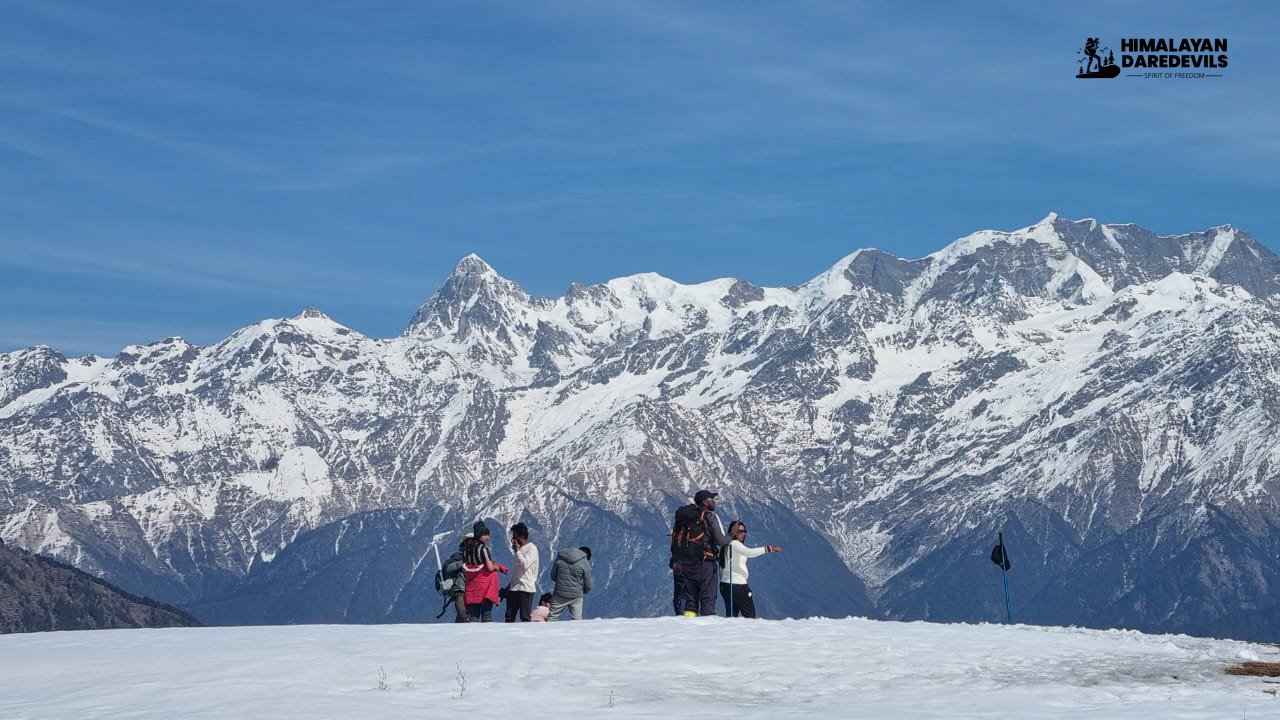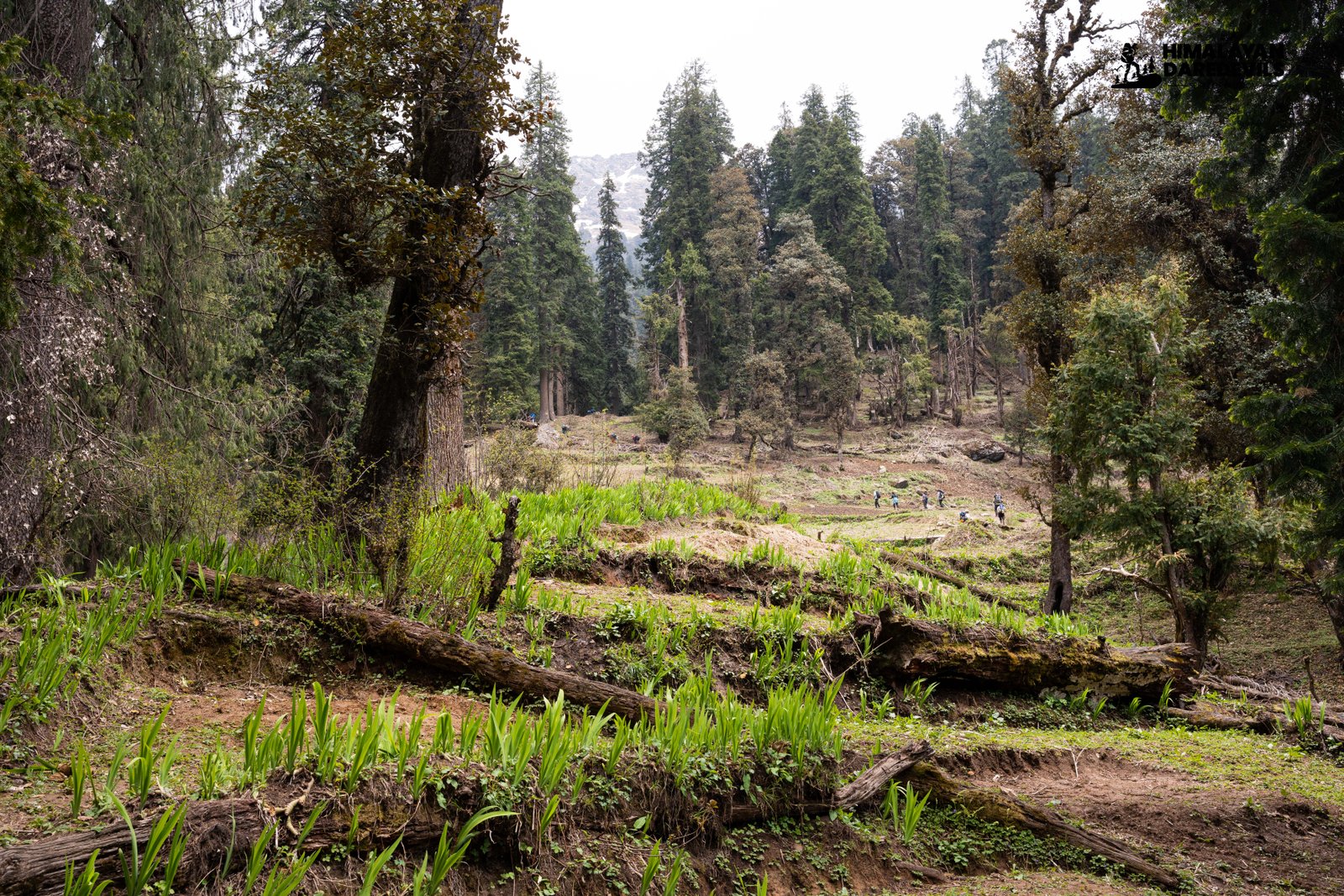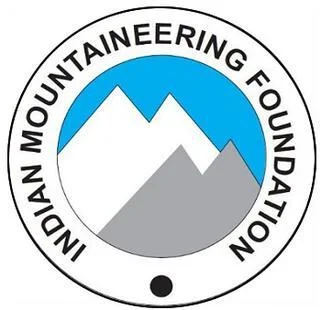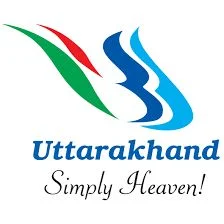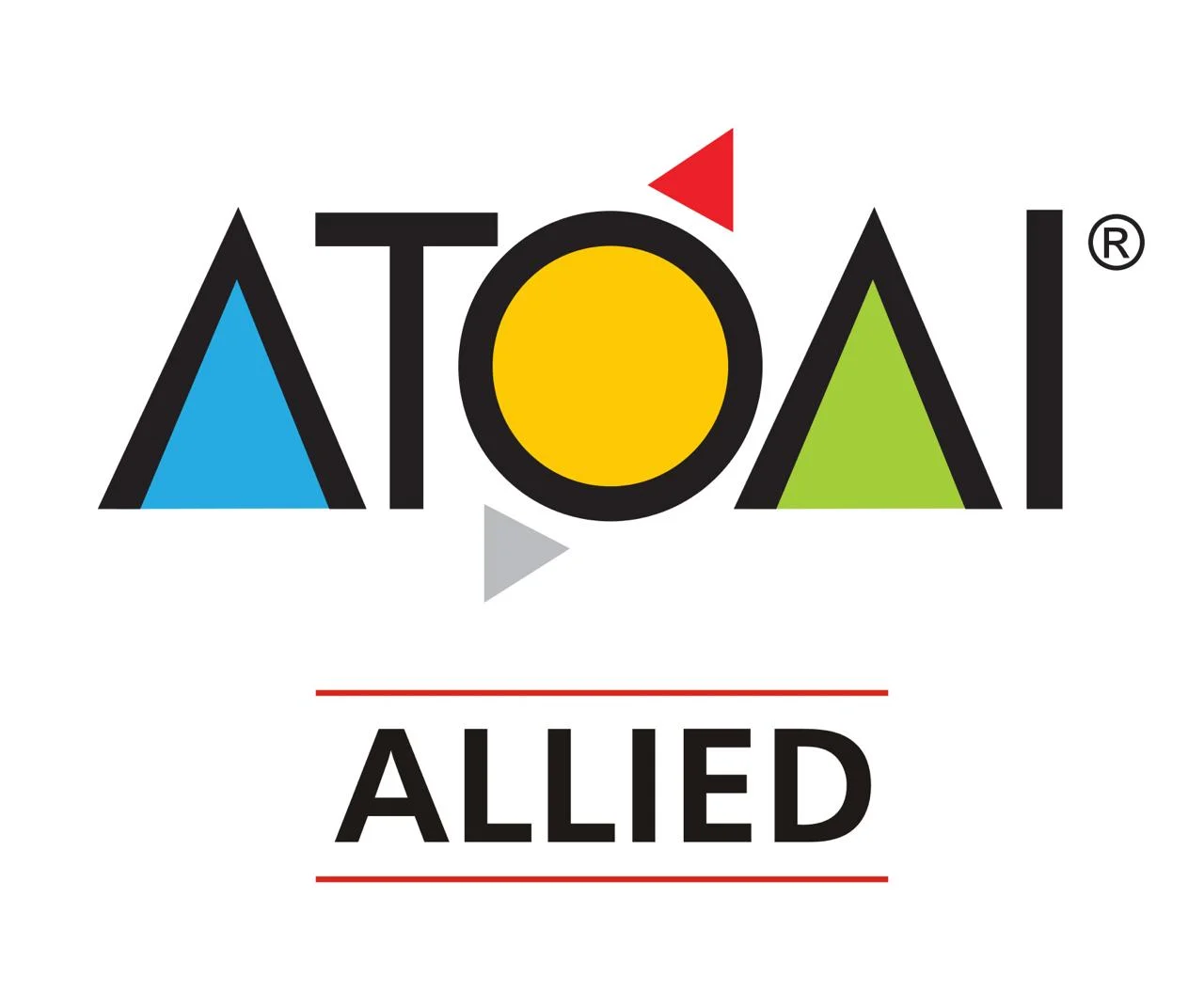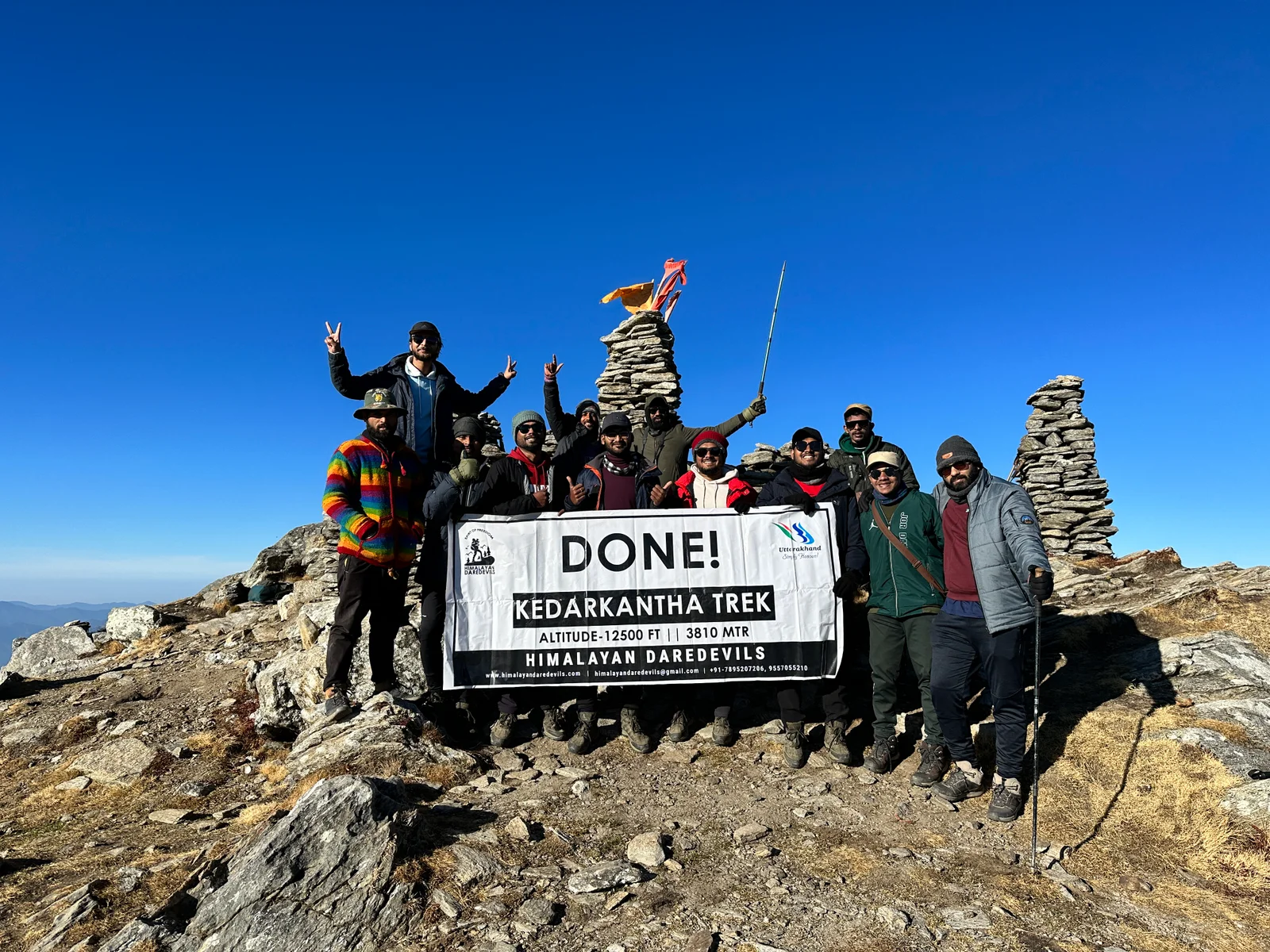Starting From
14,375
12,500.00
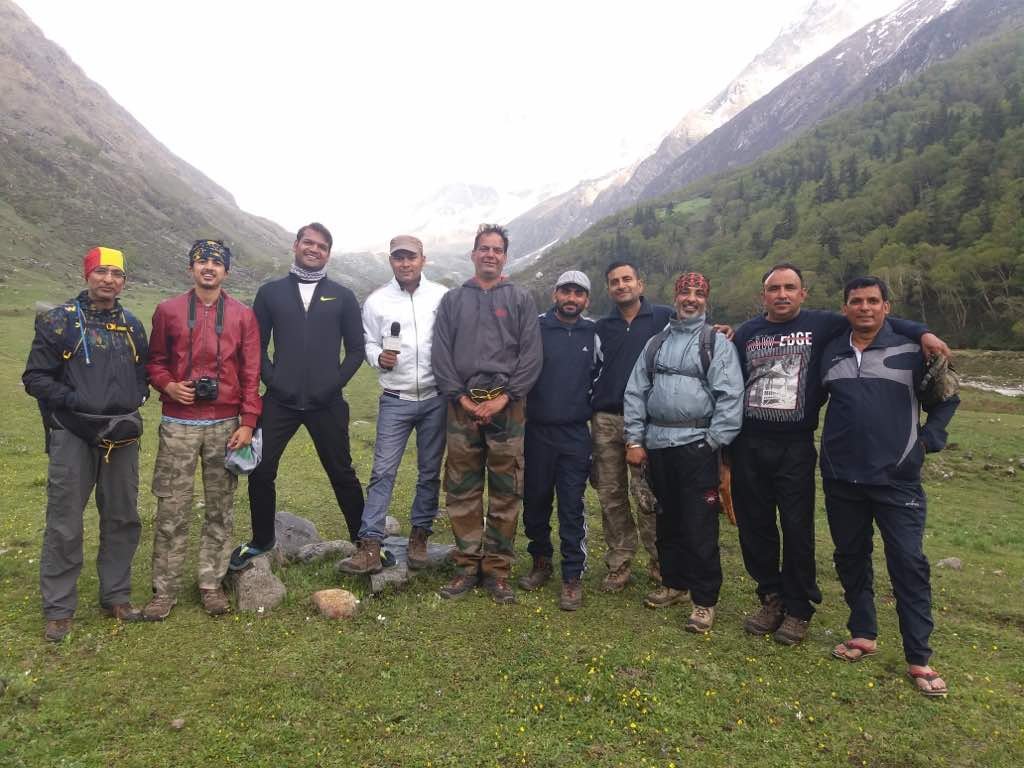
Starting From
14,375
12,500.00
Starting From
14,375
12,500.00
Dev Kyara Trek (313+ Reviews)
One way trail. The trek starts and ends at Sankri
Dehradun Railway Station
Jolly Grant Airport, Dehradun
Sankri
May , June & September , October
Sankri to Sankri
Meals while on trek ( Veg and Egg)
Homestay/ Camping
Uttarakhand
7 days
Moderate
13500 Ft
36 Km
Overview
Dev Kyara is a breathtaking high-altitude alpine meadow located in Uttarakhand’s Sankri region. The Dev Kyara Trek takes you to a vast 4 km-wide meadow at an altitude of 4,100 meters, nestled between the Rupin and Supin Valleys, running parallel to the iconic Har Ki Dun Valley.
Known for its untouched beauty, the Dev Kyara Bugyal Trek offers awe-inspiring panoramic views of majestic Himalayan peaks such as Ranglana, Daowdu, Black Peak, Bandarpoonch, Kedar Dome, and Swargarohini. Despite its dramatic scenery, Dev Kyara trekking remains relatively uncrowded, making it an ideal choice for trekkers seeking solitude and raw Himalayan wilderness.
The Dev Kyara Trek in Uttarakhand is considered a moderate and accessible Himalayan trek, perfect for trekkers looking to explore one of the most pristine and lesser-known trails of the Western Garhwal Himalayas without extreme technical difficulty.
Best Time to Do Dev Kyara Trek
The best time to do the Dev Kyara Trek is from May to June and September to October, when the weather is stable, and the trail showcases its best colors.
May to June (Summer):
This period offers pleasant daytime temperatures, clear mountain views, and blooming alpine flowers. The meadows of Dev Kyara turn lush green, making it an excellent time for photography and first-time trekkers.July to August (Monsoon – Not Recommended):
Heavy rainfall can make trails slippery and unsafe, with increased risk of landslides in the region.September to October (Autumn):
Post-monsoon skies are crystal clear, and the meadows take on golden hues. This is one of the most scenic times to experience the Dev Kyara Bugyal Trek, with minimal crowds and crisp mountain air.
Dev Kyara Trek Difficulty Level
The Dev Kyara Trek is classified as a moderate-difficulty Himalayan trek, suitable for trekkers with basic fitness levels and some prior trekking experience.
Trek difficulty highlights:
Maximum altitude: 4,100 meters
Average walking hours: 5–7 hours per day
Terrain: Forest trails, alpine meadows, gradual ascents, and river crossings
Fitness requirement: Good cardiovascular endurance and leg strength
While beginners can attempt this trek with proper preparation, it is ideal for trekkers looking to progress beyond easy Himalayan treks and experience high-altitude wilderness without technical challenges.
Safety & Acclimatization on Dev Kyara Trek
Safety is a top priority on the Dev Kyara Trek in Uttarakhand. Proper acclimatization and gradual altitude gain ensure a safe trekking experience.
Safety measures followed:
Slow ascent to allow natural acclimatization
Regular health checks by trek leaders
Emergency evacuation protocols
Carrying oxygen cylinders and medical kits
Trekkers are advised to stay hydrated, avoid alcohol and smoking during the trek, and communicate any discomfort immediately to the trek leader.
Why Choose Himalayan Daredevils for Dev Kyara Trek
Choosing the right trekking organization makes all the difference. Himalayan Daredevils brings deep local expertise and a strong safety record to every expedition.
Why trek with us:
Certified and experienced trek leaders
Local guides with in-depth regional knowledge
Focus on safety, sustainability, and small group sizes
Well-planned itineraries and transparent pricing
Years of experience operating treks in the Sankri region
With us, you don’t just trek - you experience the Himalayas responsibly and authentically.
Itinerary
Arrive in Sankri: This is the starting point of the trek. You'll need to reach Sankri, which is a small village located in Uttarakhand, India. You can either drive or take a bus from Dehradun to reach Sankri. Spend the day exploring the village, acclimatizing to the altitude, and preparing for the trek ahead.
-
Sankri to Baincha (3 hours drive): Start the day by driving from Sankri to Baincha, which is the trailhead for the Dev Kyuara trek. The drive takes approximately 3 hours.
Baincha (6,762 ft) to Obra (7,641 ft) - 3.4 km, 3 hours trek: Begin the trek from Baincha and hike to Obra. The trail is around 3.4 kilometers long and takes about 3 hours to complete. Obra is a scenic campsite where you'll spend the night
-
Obra (7,641 ft) to Bhawa Waterfalls (11,234 ft) - 8.13 km, 7 hours: Start the day's trek from Obra and make your way to Bhawa Waterfalls. This leg of the journey covers approximately 8.13 kilometers and takes around 7 hours. Bhawa Waterfalls is a beautiful spot where you can enjoy the cascading waters. Camp near the waterfalls for the night.
-
Bhawa Waterfalls to Kimdhara - 3 km, 3 hours: Resume the trek from Bhawa Waterfalls and hike for about 3 kilometers to reach Kimdhara. This stretch typically takes around 3 hours. Kimdhara is a picturesque camping site surrounded by stunning mountain views. Set up camp and spend the night here.
-
Kimdhara to Dev Kyara and back to Kimdhara camp - 4 km, 4 hours: Today is the day to reach the highlight of the trek, Dev Kyuara. Start the trek from Kimdhara and hike for approximately 4 kilometers to reach Dev Kyuara. The ascent takes about 4 hours. Spend some time at the summit, enjoying the panoramic views, before descending back to the Kimdhara campsite. Camp overnight at Kimdhara.
-
Kimdhara to Obra - 14 km, 6 hours: Leave Kimdhara and start the trek back to Obra. The trail covers approximately 14 kilometers and takes around 6 hours to complete. Once you reach Obra, set up camp and spend the night.
-
Depart from Sankri, drive to Dehradun: This is the final day of the trek. Start the descent from Obra and make your way back to Sankri. From Sankri, you'll drive back to Dehradun, where the trek concludes.
Dev Kyara Trek Map
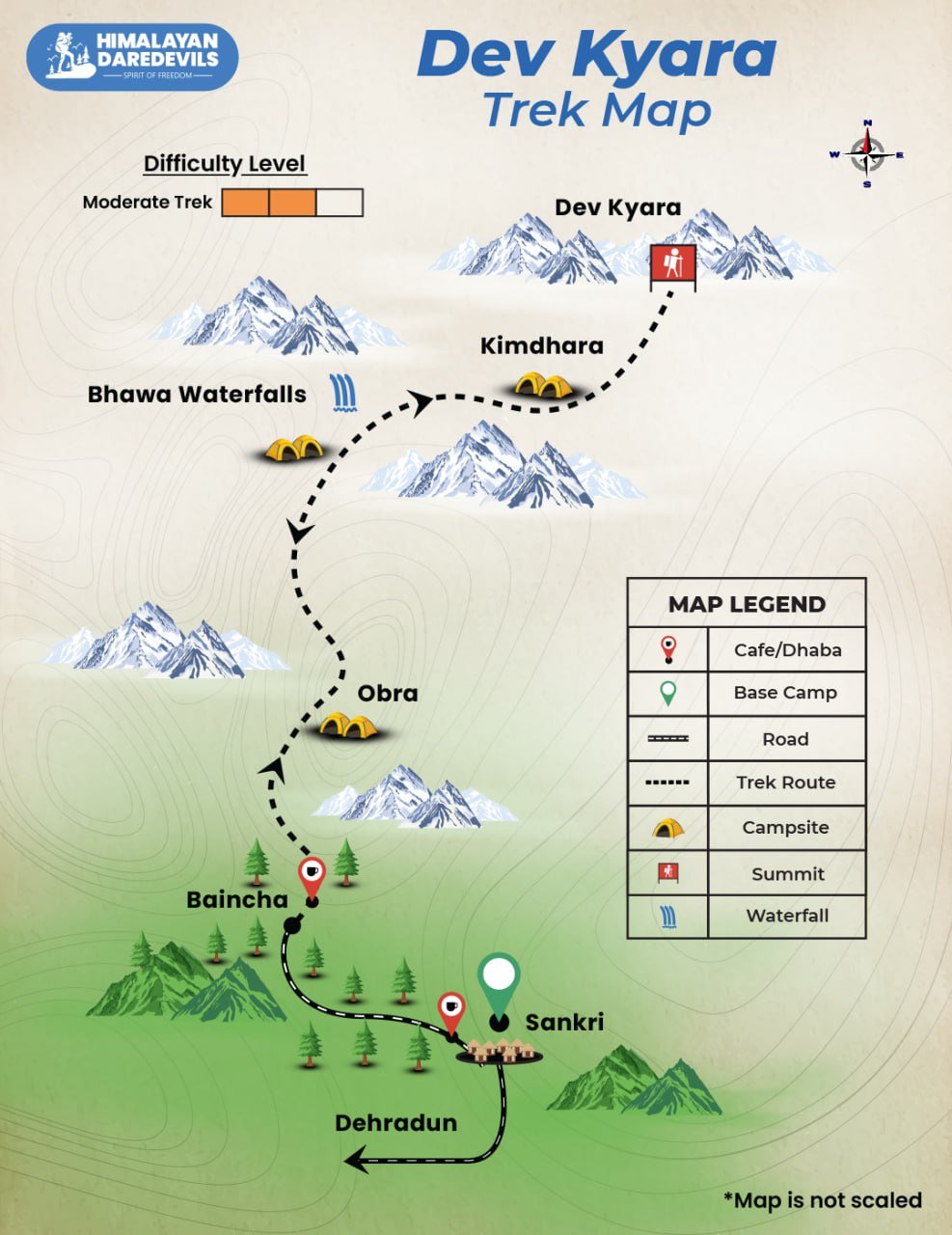
Inclusions
Exclusions
1. Meals while on trek (Veg).
2. All necessary entry fees and permits.
3. Accommodation: - Guest house, Home stay, camping during Trek.
4. Mountaineering qualified & professional trek Leader, guide, cook and Support staff.
5. First aid medical kits, stretcher and oxygen cylinder.
6.Trek equipment: Sleeping bag, mattress, tent, kitchen & dinning tent, toilet tent, utensils and crampon (if required)
7. Staff Insurance.
8. Porters/mules to carry central equipment.
1. Any kind of personal expenses
2. Food during the transit
3. Mules or porter to carry personal luggage
4. Insurance
5. Transport (Non Ac)
6. Any kind of emergency evacuation charges
7. 5% GST
8.Any expense incurred or loss cost by reasons beyond our control such as bad weather, natural calamities (landslides, floods), flight delays/rescheduling/ cancelations, any accidents/medical evacuations, riots/strikes/war/pandemics etc.
9. Anything not specifically mentioned under the head
1. Meals while on trek (Veg).
2. All necessary entry fees and permits.
3. Accommodation: - Guest house, Home stay, camping during Trek.
4. Mountaineering qualified & professional trek Leader, guide, cook and Support staff.
5. First aid medical kits, stretcher and oxygen cylinder.
6.Trek equipment: Sleeping bag, mattress, tent, kitchen & dinning tent, toilet tent, utensils and crampon (if required)
7. Staff Insurance.
8. Porters/mules to carry central equipment.
1. Any kind of personal expenses
2. Food during the transit
3. Mules or porter to carry personal luggage
4. Insurance
5. Transport (Non Ac)
6. Any kind of emergency evacuation charges
7. 5% GST
8.Any expense incurred or loss cost by reasons beyond our control such as bad weather, natural calamities (landslides, floods), flight delays/rescheduling/ cancelations, any accidents/medical evacuations, riots/strikes/war/pandemics etc.
9. Anything not specifically mentioned under the head
What to carry
- Trekking shoes: A good pair of trekking shoes is essential for a comfortable and safe trek. Look for shoes that are sturdy, provide good ankle support, and have a good grip on different types of terrain.
- Backpack with rain cover (50-60 ltr): A backpack is necessary to carry all your gear. Make sure it's the right size for your trek, and comes with a rain cover to keep your belongings dry in case of rain.
- Thermals (upper and lower): Thermals are lightweight and comfortable base layers that help regulate your body temperature in cold weather. Bring both upper and lower thermals to keep warm.
- 3 T-shirts (advisable quick dry): Choose quick-drying T-shirts made from breathable and moisture-wicking materials. This will help keep you cool and dry during your trek.
- 2 trek pants: Choose lightweight and comfortable trek pants that are easy to move in and can dry quickly if wet.
- Jacket (-10 degree): A warm jacket is essential for cold weather. Choose a jacket that is waterproof and windproof, and provides good insulation.
- Fleece or hood (2): Fleece jackets or hoodies are great mid-layer options to keep warm. Bring at least two, as they can also be used as an extra layer at night.
- Sunglasses (UV protected): Protect your eyes from the sun's harmful UV rays with sunglasses that are designed for outdoor activities.
- Sun cap: A sun cap or hat with a brim will protect your face and neck from the sun.
- Hand gloves: Bring a pair of lightweight gloves to keep your hands warm and protected from wind and sunburn.
- Woollen cap: A woollen cap will keep your head and ears warm at night or in cold weather.
- Socks (3 pairs min): Bring at least three pairs of good quality socks that are moisture-wicking and provide good cushioning and support for your feet.
- Headlamp: A headlamp will come in handy if you're hiking in low-light conditions or need to find your way in the dark.
- Trekking pole (if needed): Trekking poles can help reduce strain on your legs and provide additional support on steep terrain.
- Rain cover\poncho: A rain cover or poncho will keep you and your gear dry during unexpected rain showers.
- Day pack (if you plan to offload your bag): If you plan to offload your backpack during the trek, bring a smaller day pack to carry essentials like water, snacks, and a first aid kit.
- A toiletry kit: Bring a small kit with personal hygiene items, such as a toothbrush and toothpaste, wet wipes, hand sanitizer, and toilet paper.
- Lunchbox, cup, spoon: If you plan to bring your own food, bring a lunchbox, cup, and spoon to carry and eat your meals.
- 2 one-litter bottles: Staying hydrated is crucial, so bring at least two one-liter bottles to carry water.
- 2-3 plastic covers to keep your wet or used clothes: Plastic bags are useful for keeping wet or dirty clothes separate from the rest of your belongings. They can also be used to pack out any trash or waste you generate during the trek.
How to reach
How to Reach Dev Kyara Trek (Via Sankri Village)
Sankri village is the base camp for the Dev Kyara Trek and is well connected to Dehradun by road. Dehradun is the nearest major transport hub.
✈️ By Air
- Nearest airport: Jolly Grant Airport, Dehradun (DED)
- Distance from airport to Sankri: ~200 km
- Travel time: 8–9 hours
- From Jolly Grant Airport, hire a private taxi or shared cab directly to Sankri village. Early morning arrivals are recommended to avoid night travel in the mountains.
🚆 By Train
- Nearest railway station: Dehradun Railway Station
- Well-connected to Delhi, Haridwar, and major Indian cities
- From Dehradun railway station, you can hire a taxi or shared cab to Sankri. The scenic drive takes approximately 8–9 hours.
🚌 By Road
Distance from Dehradun to Sankri: ~200 kmTravel time: 8–9 hours by taxi, 10–12 hours by bus
Travel options:
- Private taxi or shared cab (most convenient)
- Government or private buses from Dehradun / Mussoorie (may require changing buses en route)
- Road conditions are generally good, but travel time may vary depending on weather and traffic.
Fitness and preparation guide for Dev Kyara Trek
Proper physical preparation is essential to enjoy the Dev Kyara Trek comfortably and safely. Since this is a moderate-altitude Himalayan trek, building stamina and leg strength in advance will make a noticeable difference on the trail.
Recommended Fitness Routine
Jogging is one of the most effective ways to prepare for trekking. It targets the same muscle groups used during long walks in the mountains — calves, glutes, hamstrings, and core — while steadily improving cardiovascular endurance. The best part is that jogging requires no special equipment and can be done anywhere.
Fitness Target
To complete the Dev Kyara Trek comfortably, you should be able to:
- Run 5 km in under 35 minutes
- This benchmark indicates adequate stamina for daily trekking distances and altitude gain.
- How to Achieve This Fitness Level
- Start jogging at least 4 days a week
- If running 5 km feels difficult initially, begin with 2 km and gradually increase the distance
- Aim to reach 5 km within 2–3 weeks
- Once you can run 5 km comfortably, begin improving your pace
- Gradually work towards completing 5 km in under 35 minutes
- Maintain this pace consistently for at least 2 weeks before the trek
Preparation Timeline
The Dev Kyara Trek requires a minimum of 6–8 weeks of preparation. Starting earlier allows your body to adapt gradually, reducing the risk of fatigue or injury during the trek. The longer the preparation period, the more enjoyable and safer your trekking experience will be.
FAQ
The best time to do the Dev Kyara trek is during the summer months of May to June and the post-monsoon season of September to October. During these periods, the weather is relatively stable, with clear skies and pleasant temperatures for trekking.
The Dev Kyara trek is considered moderately challenging. It involves steep ascents, rocky terrain, and high altitudes. Prior trekking experience and a good level of fitness are recommended.
The trek starts from Sankri village in Uttarakhand. The nearest airport and railway station are in Dehradun, about 200 km away. From Dehradun, you can hire a taxi, shared cab, or take a bus to Sankri.
Essential items include trekking shoes, warm clothing, a rain jacket, trekking poles, personal medicines, water bottles, snacks, and a backpack. For detailed guidance, check our “What to Carry” section.
Trekkers should be able to run 5 km in under 35 minutes or follow a 6–8 week jogging and fitness plan. Strength training, lunges, squats, and acclimatization walks will help prepare for high-altitude trekking.
The trek is typically 6–7 days long, including travel to Sankri. Daily trekking ranges from 5–7 hours, with moderate ascents and descents.
Yes, it is safe for beginners with moderate fitness. Experienced guides accompany all groups, and basic safety and first-aid protocols are in place.
Yes, the trek requires forest permits and entry passes for the Sankri region. These are included in our trek package, so you don’t need to worry about paperwork.
Winter trekking is not recommended due to heavy snowfall, extreme cold, and trails that are often inaccessible. Stick to May–June and September–October for a safe and scenic experience.
You can secure your Dev Kyara Trek booking directly on our website or contact our team via phone/email. Early booking is recommended during peak trekking season.
Cancellation policy
Life is unpredictable and we understand sometimes you have to cancel or change your trip dates and it is our endeavour to make it as easy possible for you. However, please understand we plan everything including guide fees, permits, accommodation and ration in advance. Therefore any cancellation means inconvenience and certain losses to the people involved in various stages of programme. Keeping that in mind, our cancellation charges are as below-
Cancellation prior to 30 days from start of the event: Get monetary refund with 15% of cancellation charges on trek fee.
Cancellation between 30 days and 15 days to the start of event: 50% on trek fee is non refundable and the remaining 50 % will be given as cash voucher which is valid for 1 year.
Cancellation less than 15 days to the start of event: No refund.
Please note cancellation will be only accepted by email.
Booking amount is non refundable
Note: The Himalayan Daredevils reserves the right to cancel a programme before departure in the event of logistical problems arriving due to natural calamities, strikes, wars on any other circumstances that makes the event inadvisable. In this case, 50% on trek fee is non refundable and the remaining 50 % will be given as cash voucher which is valid for 1 year.
Itinerary changes & trip delays:
We plan itineraries based on the information at the time of planning and in rare circumstances, there are subject to change. In the event that the itinerary is changes or delayed due to unforeseen circumstances such as bad weather conditions, transportation delays, government intervention, landslides etc. We will always aim to give you the best experience possible. However The Himalayan Daredevils are not be held responsible for the cost of delay or changes.
Why Choose Us
